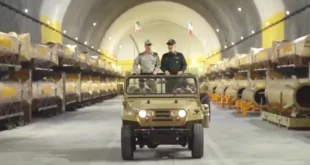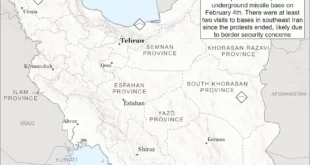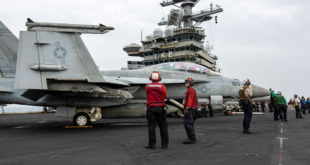 The five permanent members of the UN Security Council plus Germany will discuss imposing a third round of sanctions on Iran because of its nuclear program on Friday. Iran has refused to stop enriching uranium and the West alleges it is bent on producing atomic bombs, which Tehran denies. West has no corroborative documents to prove its allegations.
The five permanent members of the UN Security Council plus Germany will discuss imposing a third round of sanctions on Iran because of its nuclear program on Friday. Iran has refused to stop enriching uranium and the West alleges it is bent on producing atomic bombs, which Tehran denies. West has no corroborative documents to prove its allegations.
The United States, which will be represented by undersecretary of state for political affairs Nicholas Burns, says it wants to make progress in outlining the sanctions resolution and ministers can then decide on its timing.
Burns said he hoped Russia and China would attend the London meeting with a “serious demeanor.” He said the two countries had effectively blocked moves towards a third sanctions resolution for six months.
The United States imposed economic sanctions last week and has not ruled out military action against Iran. Russia believes dialogue rather than more punishment is the way forward while China reacted to the American move by saying it was opposed to imposing sanctions “too rashly.”
Speaking to reporters on Friday on her way to Turkey, US Secretary of State Condoleezza Rice said Washington had had some “tactical” differences with China and Russia about the timing and the “depth or breadth” of a Security Council resolution.
“But the Russians – when I talked to (Foreign Minister) Sergei Lavrov yesterday – he said they were prepared to come and work on the text as we agreed when we were together last and we will just have to see how those discussions go,” she said.
The major powers agreed in late September to delay a vote on tougher sanctions until late November at the earliest after it had received reports by the UN nuclear watchdog and a European Union negotiator.
After four days of talks with the International Atomic Energy Agency (IAEA) in Tehran meant to help clear up ambiguities of Iran’s atomic activities, both sides expressed satisfaction, Iran’s state broadcaster reported on Thursday.
Mohamed ElBaradei, head of the IAEA, is due to report in mid-November about whether Iran has answered questions about its past nuclear activity.
Iran says its program is peaceful and aimed at generating electricity so that it can export more oil and gas.
 Eurasia Press & News
Eurasia Press & News



